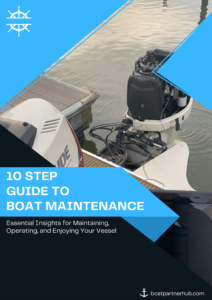Blog
Propeller Maintenance: A Comprehensive Guide to Ensure Smooth Sailing and Frequently Asked Questions

Propeller Maintenance: Expert Tips to Keep Your Boat Running Smoothly and FAQs Answered
The propeller is a crucial component of your boat’s propulsion system, responsible for converting engine power into forward motion. Proper propeller maintenance is essential to ensure optimal performance, fuel efficiency, and overall safety while on the water. By understanding propeller maintenance techniques and adhering to a regular maintenance schedule, you can prolong the life of your propeller and enjoy smooth sailing. In this comprehensive guide, we will explore propeller maintenance in detail, providing step-by-step procedures and expert tips to keep your propeller in top condition. Additionally, we will address frequently asked questions to address common concerns and help you become a proficient propeller maintenance enthusiast.
Step-by-Step Propeller Maintenance Guide
- Visual Inspection: Begin by conducting a visual inspection of the propeller while the boat is on land. Look for any signs of damage, such as bent or chipped blades, dings, or cracks. Also, check for fishing line or debris wrapped around the propeller shaft.
- Cleaning the Propeller: Remove any marine growth, barnacles, or algae from the propeller blades using a soft brush or a specialized propeller cleaning tool. Ensure that the blades are clean and free from any obstructions that could affect performance.
- Checking for Balance: Propellers can become unbalanced over time, leading to vibrations and reduced efficiency. If you suspect an imbalance, consult a professional to assess and correct the propeller’s balance.
- Greasing the Propeller Shaft: Regularly lubricate the propeller shaft with marine-grade grease to prevent corrosion and ensure smooth rotation. Check the owner’s manual for the appropriate grease type and frequency of application.
- Inspecting the Propeller Hub: Examine the propeller hub for any signs of wear or damage. A damaged hub can result in reduced performance and should be repaired or replaced promptly.
- Propeller Nut and Cotter Pin Inspection: Check the propeller nut and cotter pin for tightness and security. Replace any damaged or corroded cotter pins to ensure the propeller stays securely attached.
- Testing the Propeller: Once all maintenance steps are completed, take the boat out for a test run to ensure the propeller performs smoothly. Pay attention to any unusual vibrations or noises during the test.
FAQs (Frequently Asked Questions)
Q1: How often should I inspect and maintain my propeller?
A: It is recommended to inspect and maintain your propeller at least once a season. Regular checks and maintenance will help detect issues early and prevent potential problems while on the water.
Q2: Can I perform propeller maintenance myself, or should I seek professional help?
A: Some basic propeller maintenance tasks, such as cleaning and greasing, can be done by boat owners. However, more complex repairs or balancing should be handled by a qualified marine mechanic or propeller specialist.
Q3: What are the signs of a damaged propeller?
A: Signs of a damaged propeller include vibrations, poor performance, unusual noises while running the engine, and visible dents or cracks on the propeller blades.
Q4: Should I replace a damaged propeller or have it repaired?
A: Minor damage to a propeller can often be repaired, but significant damage or wear may require propeller replacement. Consult with a professional to determine the best course of action.
Q5: How can I prevent propeller damage while boating?
A: Avoid shallow waters, rocks, and underwater obstacles. Be cautious when approaching beaches and docks to prevent accidental propeller damage.
Conclusion
Proper propeller maintenance is essential to ensure a safe and enjoyable boating experience. By following the step-by-step propeller maintenance guide and being proactive in addressing any issues, you can extend the life of your propeller and optimize your boat’s performance. Regularly inspecting and caring for your propeller will also help you avoid unexpected breakdowns and costly repairs. Remember to take your boat to a professional if you encounter any significant damage or issues beyond your expertise. With a well-maintained propeller, you can confidently navigate the waters, knowing that your boat’s propulsion system is in excellent condition.


